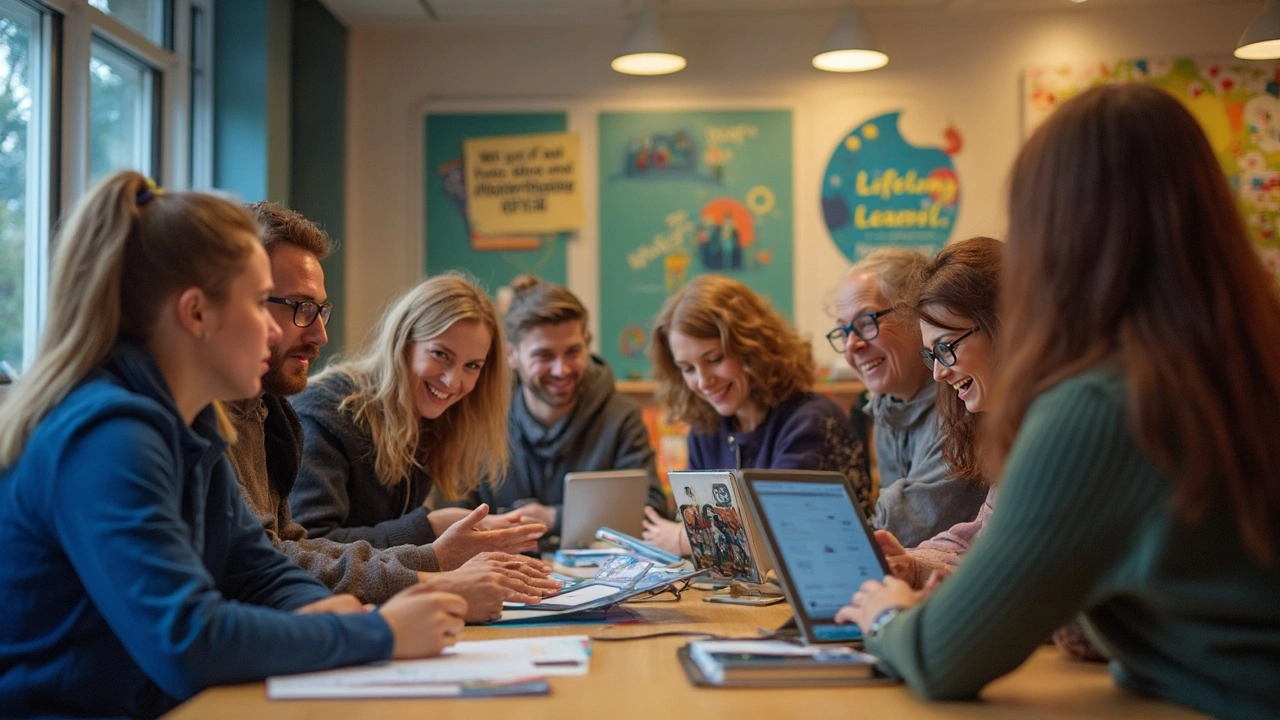Education Process – How Children Learn and Grow at Nottingham Nursery School
When you think about a child's first steps into learning, you picture bright rooms, curious hands, and teachers who know how to turn a question into an adventure. That's exactly what we call the education process – the way we help kids move from discovery to understanding, day by day.
At Nottingham Nursery School our education process blends play with purpose. We start each day with a simple routine that gives children a sense of safety and a clear expectation of what comes next. That routine lets them focus on the activities that follow without feeling lost.
What Makes a Good Education Process?
A solid education process has three key parts: engagement, guidance, and reflection. Engagement means giving children materials that spark interest – think blocks, storybooks, or a garden patch. Guidance is the teacher’s role in asking the right questions, modeling how to solve a problem, and showing respect for each child’s ideas. Reflection lets kids talk about what they did, why it mattered, and what they might try next time.
For example, during a simple science activity we let toddlers explore water flow with funnels. First, we watch them play (engagement). Then we ask, "What happens when you tilt the funnel?" and help them experiment (guidance). Finally, we gather around and share observations, encouraging each child to say one thing they learned (reflection). This loop repeats across all subjects, turning everyday moments into learning milestones.
Another important piece is consistency. Repeating certain patterns – like a weekly music circle or a daily storytime – builds confidence. Kids know what to expect and can focus on mastering new skills instead of figuring out the schedule.
Resources to Explore
Our tag page pulls together a variety of articles that dive deeper into the education process. Want to understand how online learning differs from traditional classroom settings? Check out “Online vs Distance Learning: Clear Differences, Examples, and How to Choose.” Curious about how adults learn? Read “Adult Learning Styles Explained: Visual, Auditory & Kinesthetic Insights.” Each post offers practical tips you can try at home or discuss with our teachers.
If you’re looking for quick wins, try the “Best Breakfasts Before a Test” guide – it shows how a simple snack can boost focus. Or read “How to Mentally Prepare for Exams” for stress‑free study routines, even though our nursery kids aren’t taking exams yet, the mindfulness techniques work well for any age.
All of these resources share one thing: they keep the education process simple, purposeful, and child‑centered. You don’t need fancy jargon to help a child learn; you need clear steps, lots of encouragement, and an environment where mistakes are okay.
Ready to see the education process in action? Come visit our classrooms, join a parent‑info session, or simply scroll through the articles below. Each piece is written to give you a handy tool you can use right away, whether you’re planning a craft, helping with homework, or just talking about the day’s adventures.
Remember, the education process isn’t a one‑size‑fits‑all plan. It’s a living, breathing routine that adapts as your child grows. By staying involved, asking questions, and celebrating small wins, you become a key part of that process. Together we can build a solid foundation for lifelong learning.
Adult Education Journey: Unlocking Lifelong Learning
Adult education is a vital part of lifelong learning, providing opportunities for personal and professional growth. The process involves understanding the unique needs and goals of adults, which differ from traditional education. This journey includes a variety of formats, from night classes to online courses, offering flexibility for busy adults. Exploring this landscape, one discovers effective strategies to overcome common barriers and make learning rewarding. It's a chance for adults to enhance skills or pivot careers, empowering them to thrive in today's ever-changing world.
